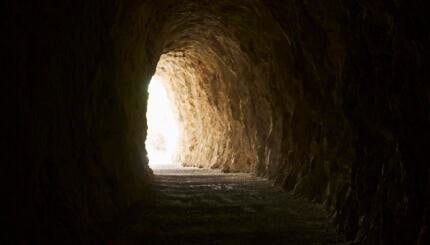Hollywood endings set us up for failure. Driven by our deep human need to smooth the frayed edges of our existence, they provoke us to compulsively search for happily-ever-afters. Divine justice, eschatological yearnings and Hegelian synthesis are some of the other ways we seek to absolve ourselves of the complexities of human existence. Yet reality is harsh. The world comes to us in broken pieces. Most stories don’t have happy endings and most human lives are not lived in harmony. And as far as Judaism is concerned, the messianic time has not yet arrived.
Does that mean we must be eternal pessimists? Should we abandon our drive toward tikkun olam, the vision of a redeemed, emancipated world? The American philosopher Susan Neiman, in her book Why Grow Up?, says no. She explains that confronting the gap between the world as it is and the world as we want it to be is the key to growing up. By refusing to succumb to dogma or despair, by tirelessly working toward the “ought” without denying the “is,” we embody courage, faith, and hope — essential ingredients for human flourishing.
Part of this process requires cultivating human curiosity. The renowned developmental psychologist Jean Piaget taught that curiosity arises when there is a conflict between what we think we know and what we experience. Both Piaget and Neiman recognize that human development and striving emerge from this tension between expectation and reality. At the seat of dissatisfaction, curiosity is born.
This insight is echoed in this week’s Torah portion, the final one in the book of Genesis. At first glance, the narrative appears almost cinematic: a long-lost father and son are reunited, fractured siblings reconcile and a divided family is made whole. But beneath this seemingly idyllic resolution lies a harsher reality. The conclusion of Genesis ushers in a dark and tumultuous exile, a prolonged period of slavery and the apparent abandonment of the covenantal promises and Divine protection that guided the lives of the forefathers. It is in this stark contrast between the world as it is and the world as it ought to be that biblical faith begins.
With your help, My Jewish Learning can provide endless opportunities for learning, connection and discovery.
And it is not a comfortable or easy faith. Knowing his death is near, Jacob gathers his sons around him. Like every good parent, Jacob wants to leave his children with a rich inheritance — not just monetary, but psychological. He seeks to shield them from the turmoil he experienced during the years of not knowing what happened to his son Joseph. The text tells us he intended to reveal to them “the end of days” (Genesis 49:1–3), a messianic vision of the future. But the succeeding verses convey no such vision, instead relaying Jacob’s blessings to each of his sons. Puzzled by this sharp break in the narrative, commentators suggest that the shekhinah, the divine presence, suddenly departs from Jacob, preventing him from revealing the end of days.
Ever attuned to the realities of human existence, the Torah offers no premature comforts. Instead, in withholding the messianic vision, it invites us to live within the gap between the ideal and the real, between what we know and what we don’t. The Torah’s vision for bridging this uncertainty is a father’s guidance on channelling his sons’ character traits toward the collective good. This is the “grown-up” religion of our forefathers — a faith that embraces the messy, complex vices and virtues of humanity and calls on us to use our divinely given traits to close the gap between the world as it is and as it ought to be.
It is a faith that invites us to be curious, much like Moses, who could not look away from the “great sight” (Exodus 3:3) of a bush burning yet unconsumed. It asks us to see the burning but not be consumed by it.
We have witnessed something similar in the Jewish response to the events of October 7th. Amid the relentless rollercoaster of events, it would have been easy to succumb to dogma or despair. Yet instead, an unprecedented Jewish awakening has occurred. Jews around the world have asked how they can channel their unique talents and resources toward healing, comfort and hope. They have fulfilled the Torah’s vision for triumphing over adversity as inferred in the closing scenes of Jacob’s life.
In the words of my teacher, Rabbi Jonathan Sacks: “Jewish faith is not about believing the world to be other than it is … It is the ability to see the world for what it is and yet still believe that it could be different. It is about not giving up, not letting go.”
When we occupy the uncharted spaces between expectation and reality and act in faith despite our uncertainties, we grow up. That is tikkun olam.
This article initially appeared in My Jewish Learning’s Shabbat newsletter Recharge on January 11, 2025. To sign up to receive Recharge each week in your inbox, click here.



